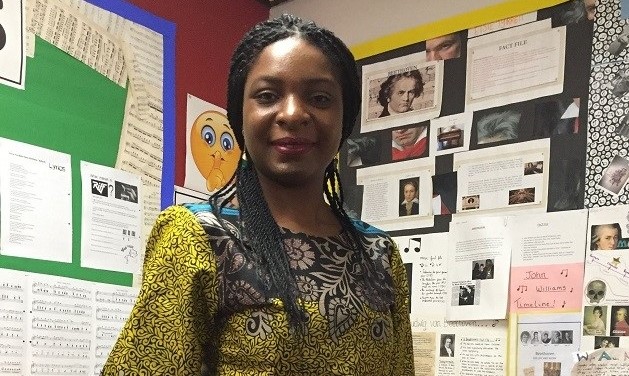Educational inequality is a major challenge in the path to development and economic prosperity in Nigeria. Typically, the children of the poor suffer from a lack of access to decent schools, qualified and experienced teachers, books, and education-enhancing infrastructure and technologies while the children of the rich get the best of the public and expensive private schools in the country and abroad.

It is also children from poor backgrounds and communities that tend to endure other dimensions of socio-economic injustice and deprivation such as lack of access to water, electricity, decent house, food while at the same time putting up with low quality education.
In Nigeria, the children of the rich and wealthy have access to the best schools, good teachers, and resources while the children of the poor are taught by unqualified absentee teachers and sometimes have to study under trees and leaking roofs. Children from poor families also skip schools regularly because they have to help their families with farm work, hawking, or selling wares in the shops and market to assist in sustaining their families.
A high proportion of children from poor families are also young carers with the responsibility of looking after someone else in the family such as a sick parent, grandparent or sibling. The impact of poverty on children’s education are many and include high levels of school absence, lack of punctuality, lack of concentration, fatigue, poor attainment, anxiety, and inability to follow up on homework. When children are not able to attend school regularly, this can create a state of hopelessness that may result in school dropouts.
For some, school can act as a trigger to more stress due to the pressure of work, bullying, and a lack of understanding and empathy from teachers. While at home, children from poor backgrounds may struggle to complete homework and even when they do, it may not be up to the expected standard because of the amount of work they have to do at home.
It is certain that the existing educational inequality in Nigeria has been made worse by the current COVID-19 pandemic. With the lockdown and closure of school, many of the children from rich backgrounds have been receiving adult support with online and private lessons while children from poor backgrounds have been fully absorbed into framing, hawking, trading and full-on caring roles with practically no education for nearly five months now.
This situation does not abode well for closing educational inequality in the country. It is also possible that the closure of schools may have increased the social and emotional burden of some young children that previously saw school as a place of respite, a time to escape from brutal labour in the farms and market, and the opportunity to socialise and be the children that they are.
Covid-19 is a deadly scourge that has affected the lives of almost everyone in this country. However, as we focus on the loss of lives, the patients suffering in the hospitals and the businesses struggling to survive the lockdown, it is important that we do not take our eyes off the over 27 million school children in this nation whose education could be irreparably compromised by the pandemic.
According to UNICEF statistics, about 10.5 million Nigerian children are not in school even though primary education is officially free and compulsory. This makes Nigeria the country with one of the highest out of school children in the world. Education is often seen as the bridge to close the economic gap between the rich and the poor.
A good education is also the foundation for the economic development of nations. In compromising the quality of education of our children, especially those from poor homes, the country runs the risk of increasing the inequality, social injustice, and unemployment in the country which in turn can worsen the security challenges faced in Nigeria. At the same time, it should be stressed that education is a right and not a privilege. According to UNICEF, all children, no matter where they live or what their circumstances, have the right to quality education.
Article 29 of the United Nations Convention on the Right of the Child states that one of the aims of education should be for children to develop to their fullest potential. However long school is bound to compromise the educational attainment of young children socially those from poor families.
As we approach September 8 which is the world’s literacy day, the government and other concerned organisations should seek to provide help to children from poor homes to help them cover up from the damage of long closure of schools. Most rural communities in Nigeria which have the highest concentration of children from poor backgrounds are more or less free from COVID-19.
It should be possible to design educational intervention packages that can help the children to learn and keep them from falling even further behind in educational attainment compared to their agemates from rich homes in the cities.
By Boma Nkiruka Okereke
Okereke is an expert in Foundation Education and a Fellow of the Centre for Climate Change and Development, AEFUNAI. She trained at Oxford Brookes University in the UK
